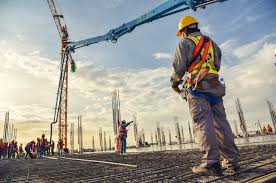
A construction certifier’s role involves approving the construction work to ensure that construction sites are safe for use and adhere to requirements and regulations. One of their key tasks is to review the plans and specifications of the construction process, then perform inspections themselves and issue compliance certificates.
The roles performed by construction certifiers
Plan review and assessment
Another key duty of a construction certifier involves scrutinizing building plans and specifications and approving them before engineering construction commencement. It will entail assessing the present design, nature of the material and the construction processes that have been adopted in order to ‘meet’ the set building codes and other standards. To conduct certification successfully, the certifier shall fully understand the requirements mentioned above and be able to explain other technical requirements whereby he or she will be required to explain technical documents.
Site inspections
During construction, the certifier must pay frequent visits to the site to oversee the progress and verify that everything is being done per the approved plan and other details. It entails inspecting construction at a given project at some crucial stages, including laying of foundation, framing, and the final stage of construction, amongst others, to assess whether the works done meet the stipulated standard. The certifier must have a sharp vision that can notice all imperfections or contradictions in his certification.
Quality control and assurance
In essence, and by legal mandate, building certifiers must undertake their responsibilities so as to act as overseers of the quality of construction works and products. It should also be noted that a building certifier should be able to assess the current industry standard and essentially evaluate the quality appropriateness of such a standard. It may require evaluating material that is to be used or product that is to be manufactured to the right standard and quality and reviewing construction operations to ensure correct implementation.
Issuing compliance certificates
When construction has been executed and the construction certifier has been provided with the work to check, they should then present some compliance certificates. These certifications confirm that construction work has been carried out to the plans and specifications as per the allowed guideline. The certifier may have to go for the final check and observation on the compliance of every/relevant standard in order to grant the certificate. A compliance certificate is a document that various building officials commonly demand, as well as insurers or buyers, to ascertain the quality and safety of the building.
Maintaining records and documentation
Other documents that the construction certifiers are required to retain include minutes of the proceeding, plans and specifications, other documents of, or in relation to, an inspection and compliance certificates. Certifiers also should make sure that all documents are adequately filled with no retention and all of them are retrievable to a full extent and without some troubles. They might also be obliged to hand over such documents to the third party as the building owner or other related authorities, if the need arises.
Finally
Project directors and project managers are other important stakeholders and should be considered since many of them rely on construction certifiers to oversee construction safety and quality, as well as adherence to rules and regulations. They deal with the construction aspect of assignments that comprises plan appraisal/assessments, site examination, and ensuring compliance.
Write and Win: Participate in Creative writing Contest & International Essay Contest and win fabulous prizes.


